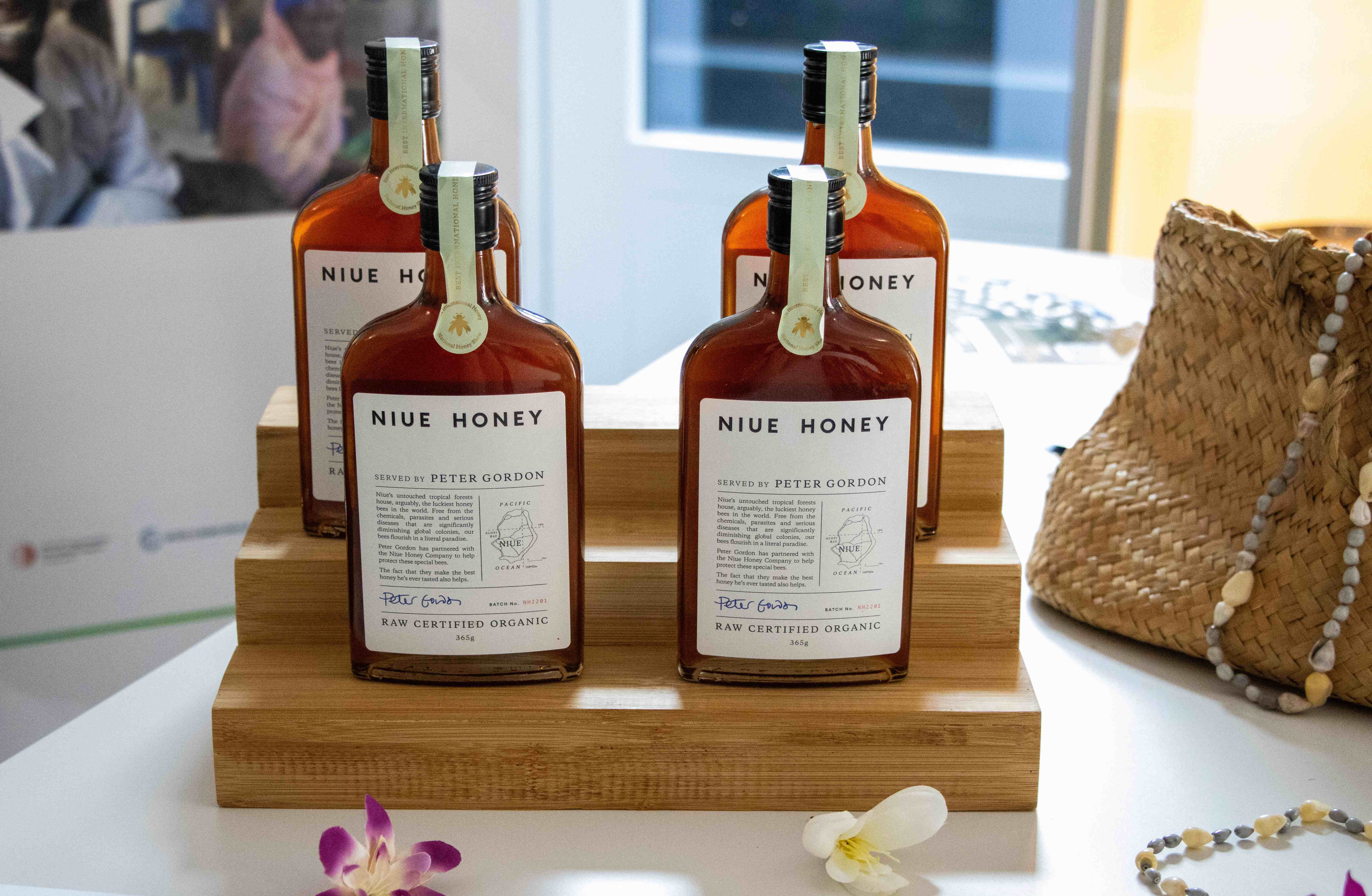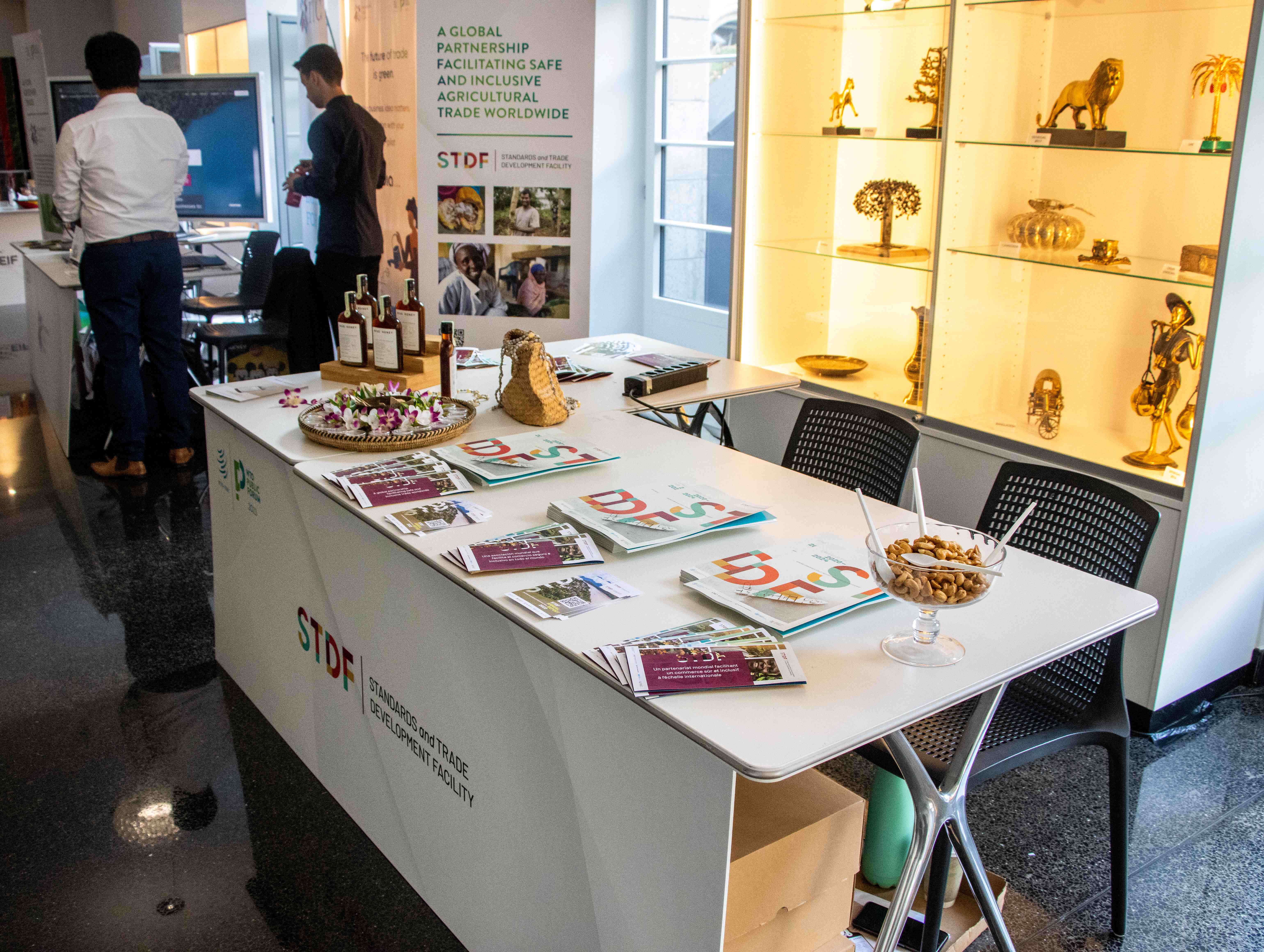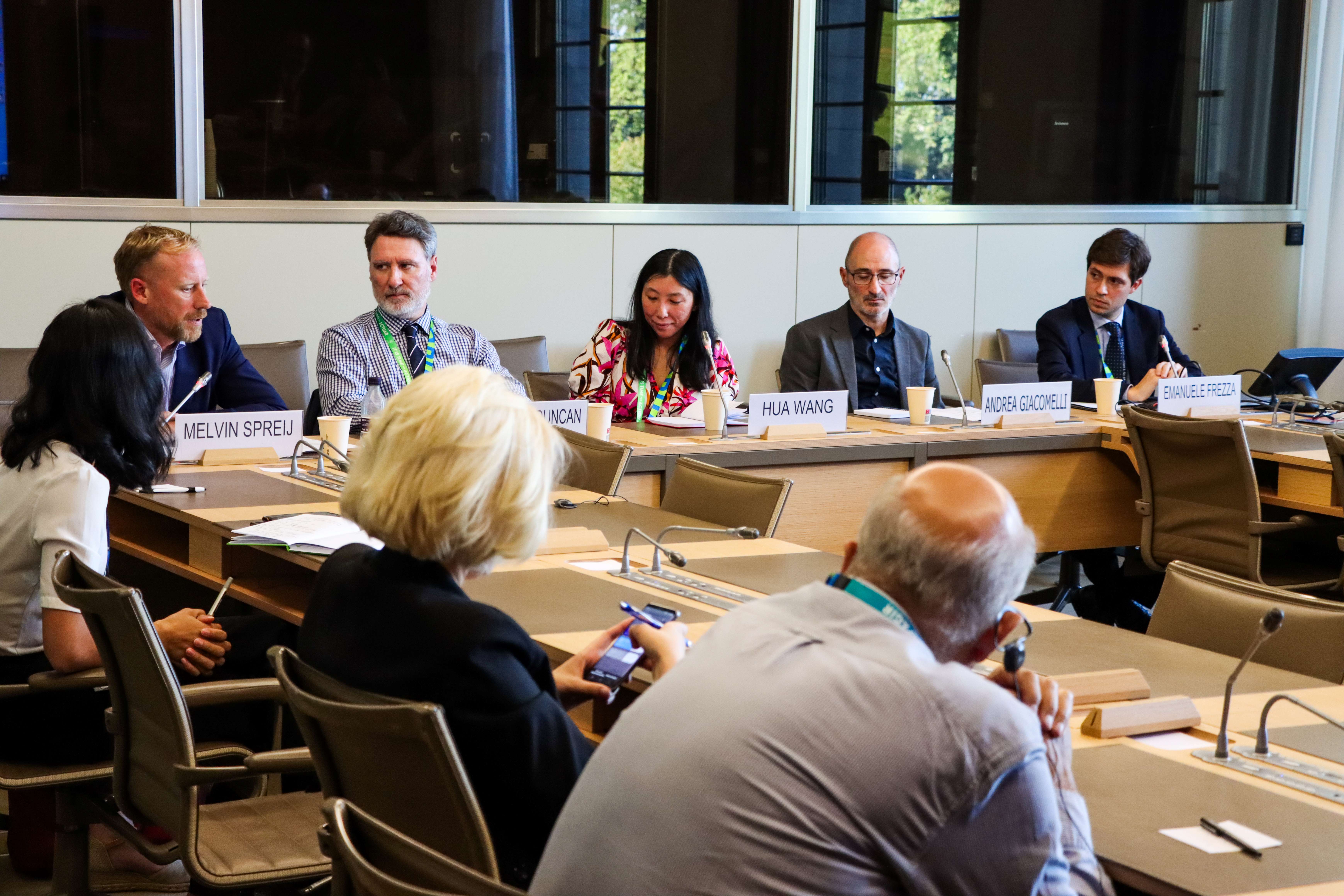What makes the award-winning Niue Honey stand out in the buzzing world of honey production? It's not just about the honey; it's about quality, sustainability and a commitment to preserving the unique ecosystem of Niue.

Nestled in the Pacific is the small island of Niue, home to the Niue Honey Company – a 25-year-old beekeeping operation with an estimated 2500 hives. Niue hosts the last known and significantly isolated stock of Italian honeybees free of all major bee diseases and parasites. With support from the Pacific Islands Forum, the Niuean government and the Standards and Trade Development Facility (STDF ), Niue is establishing a Pacific Bee Sanctuary to protect the bees for future generations and enhance apiculture by supplying healthy bee stock to other countries in the Pacific.
| In this article, we interview Richard Duncan, CEO of the Niue Honey Company, and explore its mission to protect the bees and boost honey exports. |  |
Why did Niue Honey Company approach the STDF for funding?
Niue Honey was a small and under-resourced company with limited information on international food standards. We had a request for honey from the UK and needed to navigate export protocols and sanitary and phytosanitary (SPS) issues. This was going to be the first time exporting a Niue product to this part of the world.
We approached the Pacific Islands Forum Secretariat, who introduced us to the STDF and its funding mechanism. This resulted in a project preparation grant exploring not only SPS issues but the feasibility of establishing a Pacific Bee Sanctuary, and the certification requirements to safely export live bees from Niue to other Pacific countries.
What are biosecurity issues, and why are they a concern for Niue?
Biosecurity issues refer to the measures taken to prevent the introduction and spread of diseases to animals and plants.
Honeybees can suffer from various diseases caused by bacteria, fungi, viruses, and parasites. These diseases can weaken or kill bee colonies and contaminate honey. Proper biosecurity measures can help prevent the introduction and spread of these diseases. Biosecurity concerns are vital in Niue's honey production to protect honeybee colonies and ensure the safety and quality of the honey.
An example of a biosecurity concern is when one of the islands that wanted to re-enter the sphere of beekeeping brought bees from another country that had fomites – a parasite that drains the bees and kills beehives. This affected their colonies, reputation, and potential market access in the Pacific.
How has support from the STDF impacted biosecurity issues?
The STDF has been great in lifting our visibility, with agencies in the Pacific who are now listening to our biosecurity concerns. We now have a regional group that is aware of and taking biosecurity concerns into consideration. The STDF has also assisted in identifying biosecurity gaps in the system, which we are working to address.
One of the gaps that must be addressed is communication with tourists, ensuring they do not bring honey products to the island, as Niue is a bee sanctuary. There is a risk of introducing diseases to the island through external honey products.
What are the current export markets for Niue Honey?
Niue Honey has been successfully launched as a niche high-end gourmet in New Zealand. We have received great feedback from retailers, with some stating that it is the fastest-selling honey product on their shelves. The product has also developed a loyal base of customers who repeatedly purchase the product. This has given us the confidence to expand internationally into other export markets. We conducted a trial in Australia, which went well, and are looking to launch in the United States in 2024.
|
Niue honey on display at the 2023 WTO Public Forum. |
Niue Honey panel discussion at the 2023 WTO Public Forum |
Establishing the right partnerships is vital in enhancing your market access. How has the STDF helped build your network?
The STDF introduced us to all the Pacific Forum agencies and we have held meetings with them, emphasizing the potential biosecurity risks and encouraging a regional approach to address them.
Through events like the World Trade Organization (WTO) Public Forum, we have had the opportunity to connect with stakeholders, including potential donors interested in the project.
We are now preparing a regional project to develop the apiculture industry in the Pacific. With the right funding and proper connections, this should become one of the biggest projects in the Pacific Islands that will last for generations to come. And, when you work with institutions like the STDF, it becomes a project that can be scaled and accelerated, which is essential in a world where diseases are spreading.
What is the next stage for Niue Honey?
The next stage is to establish a regional roadmap as we expand the bee sanctuary to other islands. We will need to evaluate what support is required, such as training or the review of legislation. It would not be possible to implement a regional project by ourselves, and working with the STDF has helped bring other partners and funders on board through concrete steps and mechanisms.
-------
To learn more about the unique honey from Niue, visit www.niuehoney.co or the STDF website.
Listen to the recent panel discussion - "Bees & Honey: How a small business and a tiny island are using digital technologies and trade to save the world’s bees."


